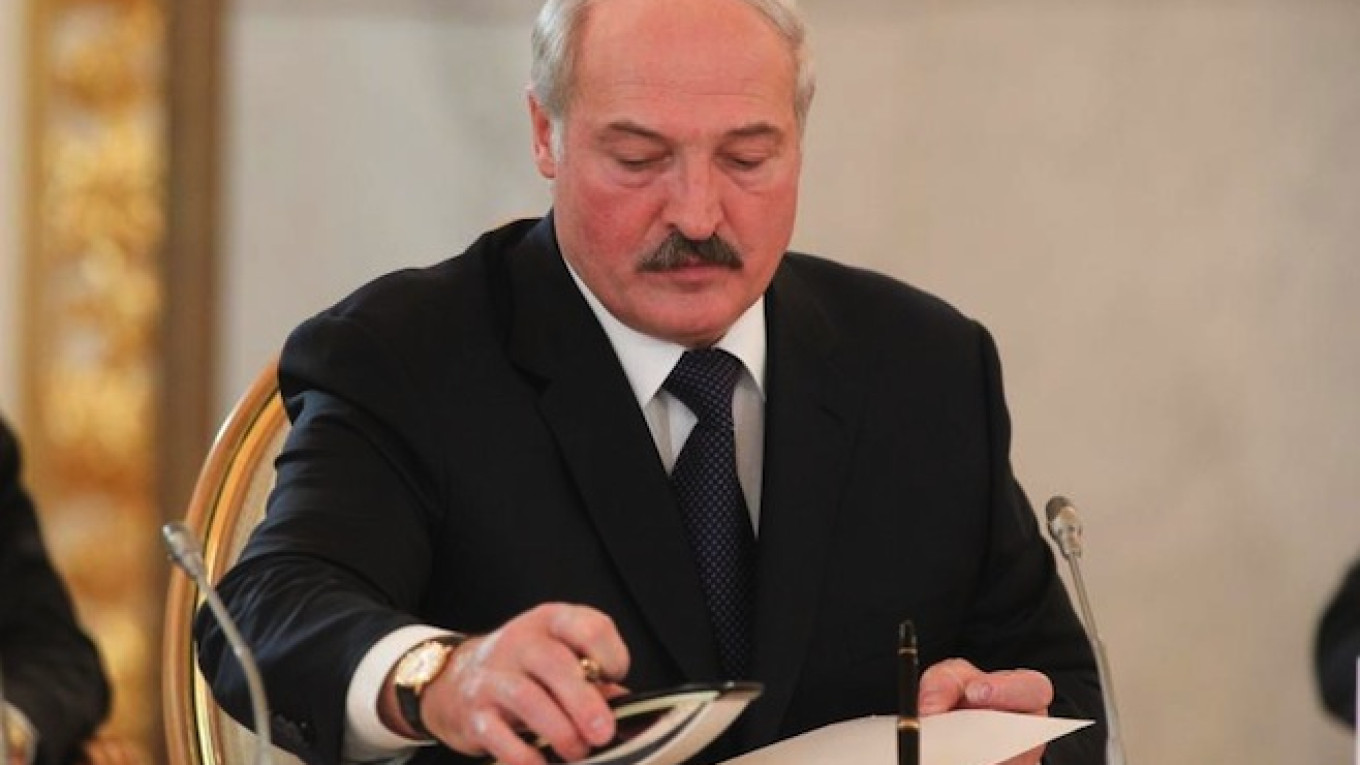Belarussian President Alexander Lukashenko said that his decision to miss Russia's May 9 Victory Day celebrations should not be viewed as a “boycott” of Moscow, but was a result of his wish to honor the 70th anniversary of the allied victory over the Nazis in World War II in his own country.
“Unfortunately, there are only two countries left here in Europe — Russia and Belarus — that on such a large scale pay their respects to the generations that have defended peace and independence in Europe, that have destroyed the brown plague,” Lukashenko said in an interview with Chinese television, excerpts of which were aired by Belarussian state-run broadcaster ONT on Monday.
“I think we should not stress in this case that Lukashenko did not go, that he as much as joined the boycott. This is absolutely silly,” he said.
Many Western leaders have said they would not be attending the grand celebrations planned by Russian President Vladimir Putin for May 9 because of their objections to Moscow's meddling in Ukraine.
But Lukashenko — who has criticized Russia's annexation of Crimea from Ukraine, but appeared eager to avoid antagonizing Moscow — said that he would visit the Russian capital ahead of Victory Day, and would then mark the holiday in his capital, Minsk.
“We have agreed on this with the Russian leadership a long time ago,” Lukashenko said. “We don't have a problem on this score in our relations with Russia. We are united on this issue.”
Lukashenko confirmed his plans to visit Moscow on May 7 and 8. The visit was intended to honor the former capital of the Soviet Union — the country that played the “main role in destroying Nazism,” he said — and the Russian people.
But the visit to Moscow would involve “our own events, Belarussian” to celebrate the victory in World War II, Lukashenko said, adding that he would also attend a meeting of the leaders of former Soviet states.
After Moscow's annexation of Crimea, Lukashenko has been walking a tightrope between maintaining close relations with Russia and asserting his nation's independence
He has accused Ukrainian troops of failing to defend Crimea after Russian forces overran the peninsula ahead of the annexation, and has pledged to restore Belarussian-language instruction at the schools of his predominantly Russian-speaking nation, after Moscow claimed its need to protect Russian-speakers as a pretext for the annexation
A Message from The Moscow Times:
Dear readers,
We are facing unprecedented challenges. Russia's Prosecutor General's Office has designated The Moscow Times as an "undesirable" organization, criminalizing our work and putting our staff at risk of prosecution. This follows our earlier unjust labeling as a "foreign agent."
These actions are direct attempts to silence independent journalism in Russia. The authorities claim our work "discredits the decisions of the Russian leadership." We see things differently: we strive to provide accurate, unbiased reporting on Russia.
We, the journalists of The Moscow Times, refuse to be silenced. But to continue our work, we need your help.
Your support, no matter how small, makes a world of difference. If you can, please support us monthly starting from just $2. It's quick to set up, and every contribution makes a significant impact.
By supporting The Moscow Times, you're defending open, independent journalism in the face of repression. Thank you for standing with us.
Remind me later.


